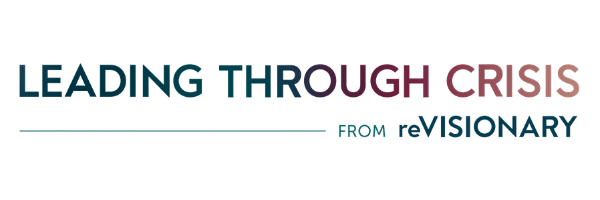Run Toward the Roar with John Robertson
Listen to this episode on Apple Podcasts or Spotify
Prior to my conversation with John Robertson, I’d never heard the saying “Run Toward the Roar” before. But, after asking him to explain it as the title of his book, I’ll never forget it! (Thanks John.)
In essence, when a male lion ages, he (sadly, like most of us) loses muscle mass, teeth, agility, and all the things that tend to decline in older age. With that is the potential threat of losing his pride (i.e. the group of lions he hangs out with) as well. Given that he can’t rely on the physical aspects of being a lion anymore, he keeps his pride because of his roar.
Let me explain…
When a lion hunts, he goes to one side of the potential prey, while the rest of his pride/hunting party goes to the other side. The lion is the leader of the pride for a reason, and that reason is his loud, intimidating roar. So when he is on the opposite side of the prey than his group, he roars, and the animal instinct of the prey at that moment is to fight, flight, freeze, or appease. Luckily for that pride of lions, the majority of animals choose flight and, as a result, run away from the roar and straight into the eager jaws of the hunting party.
However, humans are unique in that they can be trained to run toward the roar. We can learn to face our fears, step into challenging situations, deal with crises and change, directly. We can stand our ground, acknowledge what that roar indicates, and choose to step into whatever the situation is.
And, as John wonderfully points out, this is where the importance of knowing our values really matters. Because in those moments, if we don’t know our values, we too will rely on our animal instincts (because yes, we are also animals) and will often choose flight or freeze.
However, if we know what matters to us, if we know what we are working toward, if we know what impact we want to have, then we can make different choices that align with that knowing and run toward the roar. The only thing we can control is ourselves and knowing our values allows us to control what we do next.
The topic of values keeps coming up in conversations this year (spoiler: stay tuned for an end-of-year summary coming in a few weeks) and I’ve really enjoyed exploring the different ways people think about values, speak about them, and share about them. I think the lesson here is that if you aren’t currently clear on your values, on what matters to you and what you’re willing to put up with or not, then maybe this holiday season is your opportunity to get clear on them – so that, in the future, you too can run toward the roar.
I hope you’ll join us for this fun, illustration-packed conversation.
-----
Inspired and driven by his values, John acts as a facilitator for his clients as they test, discover, and expand what they can do. He uses concrete, verifiable processes to help them achieve demonstrable, solution-focused results. Remaining faithful to his passions and values, John invests himself in his vocation without reservation and provides spirit-filled, insightful guidance that his clients use to amplify their lives and businesses.
John truly provides “leadership that people can follow through storms.”
As a workforce wellness and culture alignment specialist, John works with progressive [forward-thinking] leadership to transform their traditional crisis response to:
- Creating a culture where people want to work
- Developing the leadership people trust, and want to follow
- Preparing people to know how to thrive, not just be resilient
This is done through his values-anchored Run Toward the Roar ethos – because business works when people thrive!
John’s education and certifications include Certified Coach, MHCC’s The Working Mind, Advisor in National Standard for Psychological H&S in the Workplace, Grief Resolution Specialist, Trauma Treatment Specialist, numerous psychometric tools & assessments, and a Bachelor’s and Master’s degrees from Queen’s University.
You can learn more at https://runtowardtheroar.online/ and http://fortlog.co/revisionary/.
